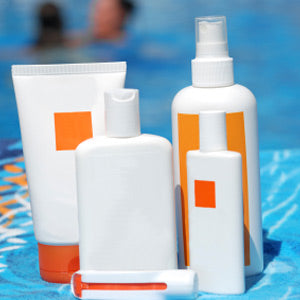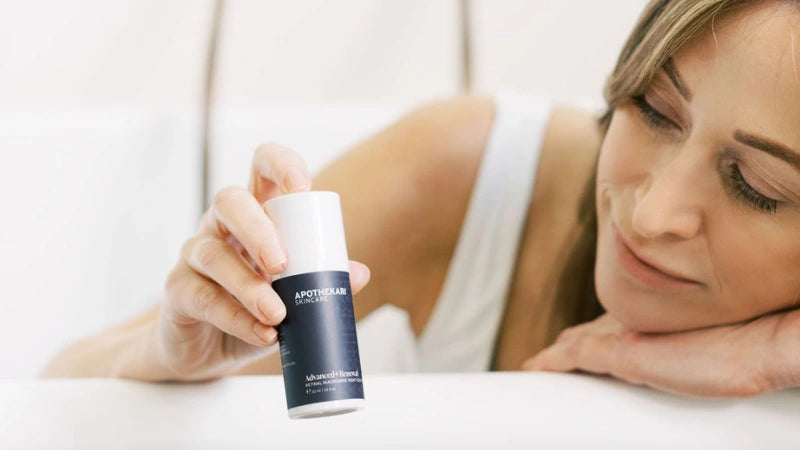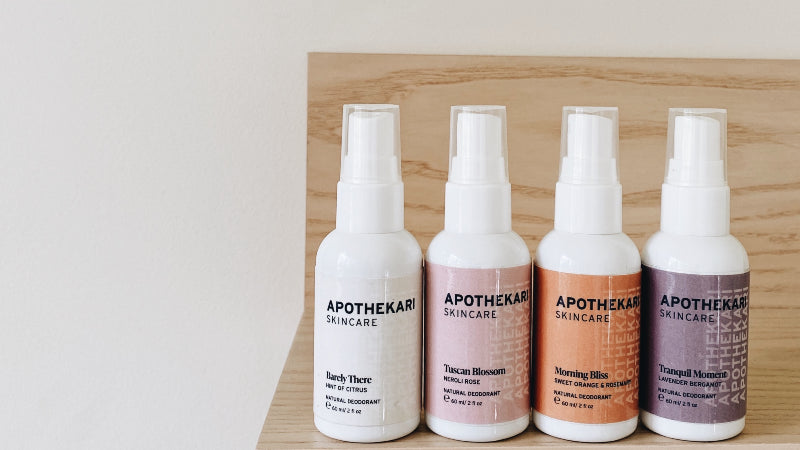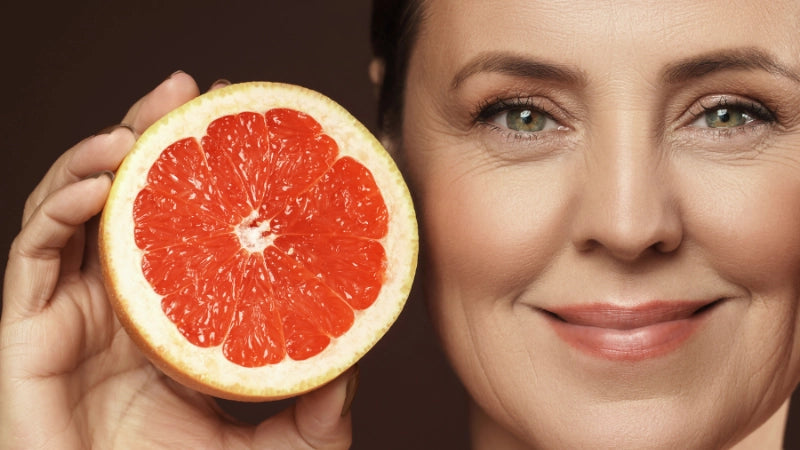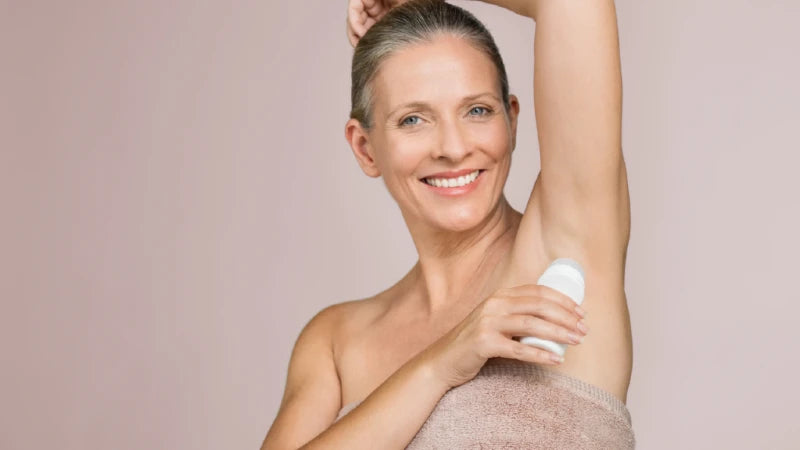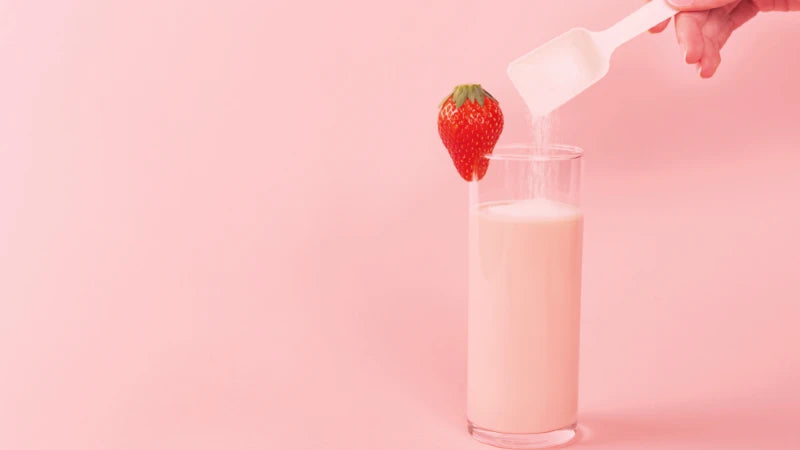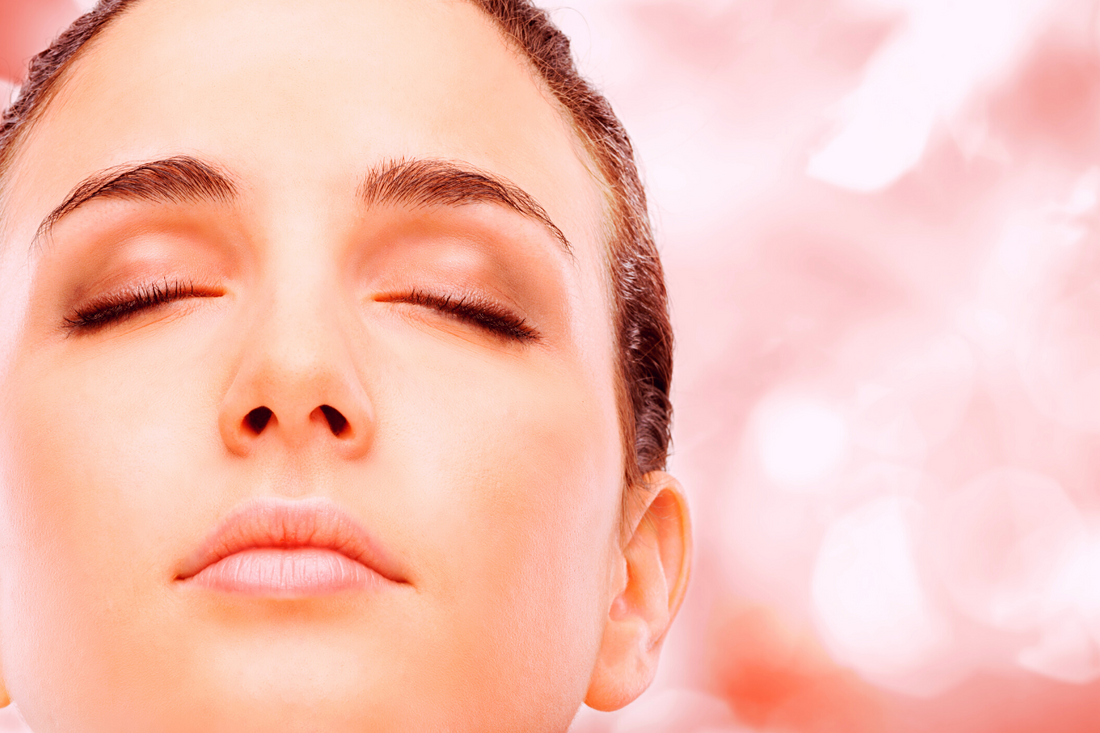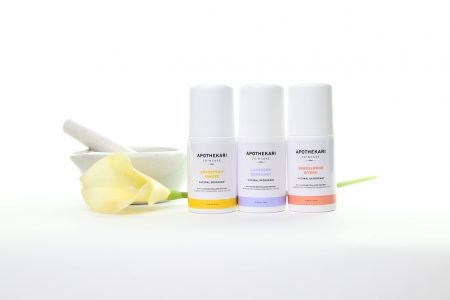Blog
Safest Sunscreen | What to Look For
These days, most of us are becoming increasingly concerned about what we put on our skin. So, it’s no surprise that when the sun is shining brightly, we seek the safest sunscreen possible. Is There a Sunscreen That Isn’t Bad for You? There’s a lot of information circulating about the potential dangers of sunscreens and their alleged link to skin cancer. However, it’s important to acknowledge that there is very little to no evidence linking sunscreen use with developing skin cancer, despite what the fear mongers perpetuate online. What is the Safest Kind of Sunscreen to Use? In fact, medical health professionals, including trusted organizations such as, The Canadian Dermatology Association, The American Academy of Dermatology, The Skin Cancer Foundation, The Center for Disease Control and Prevention and the World Health Organization, all recommend sunscreen and sun protection as the number one defense against developing skin cancer. The safest sunscreen is one that protects your skin against damaging ultraviolet light and that you will use all the time! In this post, let’s dive deeper into what’s available today to help you find the best fit for your needs. Which Sunscreen is Better Chemical or Mineral? Sunscreen filters are generally categorized into two main types: physical/mineral filters (inorganic) and chemical (organic) filters. There are only two physical blocking filters—zinc oxide and titanium dioxide. Everything else is a chemical filter. Both types are effective, and you’ll often find both a physical and a chemical filter in a sunscreen formulation, which can be a way to get the best of both worlds. Chemical filters interact with our skin’s surface, absorbing UV rays and converting them into harmless energy. Physical filters on the other hand, sit on top of the skin. They also and work by absorbing UV rays and converting them into harmless energy blocking. However, they have the additional action of being able to block or deflect UV rays. As a result, physical blocking sunscreens may feel thicker in texture compared to chemical blocking ones, due to their different mechanisms of action. We’ve posted before about sunscreen ingredients and hope that the chart below helps as well. Which is the Best Chemical Free Sunscreen? Everything is a chemical so it’s impossible to answer this question (even though it gets asked quite a lot!). If you’re worried about the impact of your personal care products on your health, be assured that cosmetics, including sunscreens—which are regulated as drugs in some countries—are overseen by government bodies to ensure their safety and effectiveness. If you want a sunscreen with minimal absorption, check out our chart below for sun filters that fit the criteria, which include not only physical blocking zinc oxide and titanium dioxide but many other chemical filters as well. What is the Safest SPF for Sunscreen? Whether physical or chemical, sunscreens need to protect against two types of UV rays: UVA rays, which are the longer penetrating rays that contribute to skin aging UVB rays, which are responsible for sunburns. SPF (Sun Protection Factor) is only an indication of UVB protection and most skincare professionals recommend a minimum of SPF 30 for adequate protection. There isn’t a universally recognized rating for UVA protection, and you’ll find several different criteria, depending on where you live: Broad Spectrum (Canada/USA) UVA-PF (Europe/UK) PA/PPD (Japan/Korea) What does matter is that you choose a sunscreen that protects against both types of UV rays. What is the Healthiest Safest Sunscreen? The healthiest safest sunscreen is one that has been produced in a lab with appropriate testing before it’s sold to you. Regardless of the ingredients they contain, sunscreens are regulated by bodies including Health Canada and The FDA. They must go through rigorous testing to ensure that they provide adequate protection. Different regulations exist in other countries, but the advice is to stick with reputable brands. Creating an effective sunscreen is a very complicated process. You can’t just slap some zinc oxide into coconut oil and call it a day. Don’t listen to anyone who tells you it’s safe to do that either! What Sunscreen is Safe for Face? Whether for face or body, buying your sunscreen from a trustworthy brand, helps to guarantee its safety. And while there’s little to no difference in terms of the protection between sunscreen for your face and sunscreen for your body, you may find that sunscreens made for the face are more pleasant to use—less greasy, less white cast, etc. That’s not always the case, but that’s been my experience. What Ingredient to Avoid in Face Sunscreen? There aren’t any specific sunscreen filters you must avoid when it comes to choosing a face sunscreen. It all really comes down to personal preference and your skin’s needs: Avoid ingredients that you are allergic or sensitive to Stay away from fragrances that you find overwhelming or that irritate your skin Love the formulation. If you don’t, you won’t be using it! What Sunscreen is Best for Coral Reefs? If you’re worried about the damage that your scuba or snorkelling adventure may be inflicting upon coral reefs, you’re not alone. Alarming headlines suggest that sunscreen, and in particular, two filters—oxybenzone and octinoxate—are harming our reefs. What you need to know is that most of this research looking at the harmful effects of sunscreen ingredients on coral reefs and other aquatic organisms has been done in a lab, and lab studies can tell only part of the story. (You can read more here). Most scientists maintain that sunscreen ingredients aren’t the sole cause of the harm to coral reefs, they are only one part of a larger issue. There are lots of other stressors on coral reefs, including rising sea surface temperature; sewage and wastewater entering the ocean; and human impact. A 2021 review, published in the journal Environmental Toxicology and Chemistry, analyzed data from 12 studies of sunscreen ingredients and their effect on coral. The researchers concluded that while there’s ample proof that UV filters are found in ocean waters, there’s limited evidence that their presence is causing significant harm to coral reefs. More studies to evaluate the toxicity of sunscreen ingredients in real-world settings are needed. What Kind of Sunscreen is Reef Safe? Despite what the marketing labels may indicate, there’s no standard or regulated meaning behind “reef safe” or “reef friendly.” Some sunscreens with those claims avoid oxybenzone or octinoxate. Others include only minerals (titanium dioxide and zinc oxide) or contain a mix of mineral and chemical ingredients. The definition of is really up to whoever sells the formulation. Plus, we don’t know if products labeled ‘reef safe’ really are better for the environment or not. In fact, while many “reef safe” sunscreens contain only mineral ingredients, a 2014 study found that titanium dioxide in the water produced hydrogen peroxide, a chemical that’s harmful to marine organisms. How Can I Maximize My Sun Protection? While using sunscreen is absolutely important, it’s also important to be smart in the sun: Cover up with sunglasses, long sleeves Seek shade Avoid sun during peak hours of 10 am – 4 pm. Include antioxidants like Glow Getter in your skincare routine. Antioxidants play a crucial role in protecting the skin from the damaging effects of free radicals, which are unstable molecules that can cause cellular damage and contribute to premature aging. By incorporating antioxidants into your sunscreen, you can enhance the overall protection it provides. Stay safe and enjoy the sun responsibly!
Learn moreRetinol & Retinoids: Your Complete Guide
You may be wondering if retinol (or another retinoid) has a place in your skin care routine. In this post we’ll explain why it’s important if you’re serious about healthy and beautiful skin. And, we’ll show you how to get this superstar ingredient into your life. Shop A Is for Anti-Aging Serum (Our Retinoid Formulation) Shop Active Eyes What is Retinol? Retinol is a form of vitamin A that you can find in skincare serums, creams and lotions, especially those marketed as “anti-aging”. Which is NOT a term we like to use around here, but which persists, nonetheless. (It’s why we’ve recently renamed our A is for Anti-Aging Serum to Advanced+ Renewal). It belongs to a class of ingredients know as retinoids, which are known for their ability to improve the appearance of fine lines, wrinkles, and uneven skin texture. And they’ve also been shown to be useful in the management of acne. Retinol may be the most well-known retinoid, but there are several others also used in skincare. Retinyl palmitate & Retinyl acetate. Very mild and gentle and available without prescription Retinaldehyde. Potent, but still gentle and found in our Advanced+ Renewal Serum. Available over the counter. Adapalene. Prescription only. Tazarotene. Prescription only. Tretinoin. Prescription only. Isotretinoin. Prescription only. Prescription forms tend to be stronger, and often more irritating to skin. If you feel you’re ready for one, your physician will be able to guide you towards the best option for your individual needs. What is Retinol Good For? As a class of ingredients in general, retinoids: Increase collagen production and decrease its breakdown, which minimize the appearance of fine lines and wrinkles along with scarring. Inhibit the production and transfer of melanin (skin pigment), which “prevents age spots from worsening and also helps to fade existing dark spots. Help unclog pores and minimize their appearance. Increase skin cell turnover, which helps replace old, dry, dead skin cells with younger, healthier ones. The result is that glow that we’re all after. Reduce transepidermal water loss, leaving skin looking more plump and hydrated. Retinol helps to improve the appearance and texture of skin. It diminishes the appearance of wrinkles and fine lines, smooths skin, fades age spots and hyperpigmentation and minimizes acne blemishes, so it’s a powerhouse ingredient to have in your skin care arsenal. Keep in mind that while retinol may be the most well known retinoid, that it’s not necessarily the best one. As effective as it is, it does come with some effects. What are the Negative Effects of Retinol? Retinol can result in some negative side effects, especially if it isn’t used correctly. Common side effects include redness, peeling, and dryness, which can be really disheartening when you start using it on a regular basis. Boo. Another way to minimize retinoid side effects is to start with a low concentration and gradually work your way up to a higher concentration. It’s also important to use retinol in combination with a good moisturizer and/or face oil to help prevent dryness and irritation. However, despite following good instructions on retinol use, you may still find your skin unable to tolerate it. In this case, you can opt for a more gentle retinoid, like retinaldehyde. Retinol vs Retinaldehyde Retinaldehyde—often simply called retinal—is retinol’s gentler, yet even more powerful cousin. And we’re BIG fans of this ingredient at Apothekari, which is why it’s included in our Advanced+ Renewal Serum, along with other actives. Retinal is also one step closer than retinol in converting to retinoic acid, making it more readily available for your skin to put it to good use. And, just like retinol, studies have shown that it minimizes the appearance of dark spots, fine lines and post-acne scarring. The kicker? It works just as well (possibly better than retinol), and with fewer side effects. It should be on everyone’s radar! What Does Retinol Do To Your Face? Once absorbed into your skin, it works by increasing the production of collagen. This helps to improve your skin’s appearance, especially by smoothing out wrinkles and fine lines. It can also increase skin cell turnover, which is why it’s useful in reducing acne blemishes and fading hyperpigmentation (age spots, etc). Can I Use Retinol Around Eyes? The skin around the eyes is thinner than skin on the rest of your face, and so quite prone to wrinkling. You absolutely can apply retinol and other retinoids around the eye. However, it’s important to be mindful as the thin skin results in greater absorption of ingredients and also has a higher potential for irritation. Using a low concentration product–including retinoid creams specifically formulated for the eye area–is a great option. They will contain either a lower concentration of retinoid, contain a gentle retinoid like retinyl palmitate or retinaldehyde; or include encapsulated retinol. Encapsulated retinol slowly releases retinol, rather than a big burst all at once, helping to minimize skin irritation. It’s an excellent way to treat the delicate skin around your eyes, where we’ve included it in our ActiveEyes Serum (along with peptides and other actives). Also remember to take the proper precautions, including using moisturizer to damp skin and sun protection. Is Retinol Good for Acne? Yes, it can absolutely help to treating acne. Because it increases cell turnover, this pushes newer, healthier skin cells to the surface, which in turn, prevents pores from clogging. It’s not always the most effective treatment for all types of acne, and if you find that it’s not working for you, check in with a dermatologist to find a better solution. How Do You Know if Retinol is Working? As with many skincare products, the impact of consistently using retinol and other retinoids can take time. You should allow at least 4-6 weeks before deciding whether it’s making a difference to your skin. Here are some signs that it may be working for you: Improved skin texture: The increase in skin cell turnover helps to smooth out bumpy and rough skin. Reduced fine lines and wrinkles: Collagen production is stimulated, which can help to reduce the appearance of fine lines and wrinkles. Brighter, more even skin tone: Improved skin tone by reducing the appearance of dark spots and hyperpigmentation. Fewer breakouts: Retinol helps to unclog pores, which reduces the frequency and severity of breakouts. When Should I Start Using Retinol? Most skin care experts advise starting retinoids in your late twenties, when the natural production of collagen and elastin in skin begins to decline. Introducing it earlier can help to prevent the signs of aging from appearing prematurely. Can I Use It Everyday? If you introduce it into your skincare routine gradually and aren’t experiencing any negative side effects (redness, irritation, peeling) then it’s perfectly safe to use it daily. However, we find that even if you introduce retinol gradually that it may cause skin irritation, especially if you have sensitive skin. The retinaldehyde in our Advanced+ Renewal Serum is not only more effective than retinol, it’s also more gentle, making it ideal for use in all skin types. In fact, many of our customers with sensitive skin are able to tolerate Advanced+ Renewal with great success after having their skin react to any other retinoid they’ve tried. Dos and Don’ts With Retinol? Do: Start with a low concentration of retinol and gradually work your way up to a higher concentration Use retinol at night. It is highly susceptible to damage when exposed to sunlight and it may also make your skin more sensitive to sun exposure. For this reason, make sure you’re apply sunscreen every day. Use a moisturizer to help prevent dryness and irritation Use consistently and be patient. It can take several weeks to see results Don’t: Use during the day as it degrades with exposure to sunlight and may also increase your skin’s sensitivity. Use if you are pregnant or breastfeeding Use in combination with other active ingredients like alpha hydroxy acids and low pH treatments without consulting a skincare professional. It’s generally safe to use them on alternate days. Use too much. Your skin can only absorb so much. Plus, this can lead to dryness and irritation Hope you enjoyed reading this!
Learn moreEverything You Wanted to Know About Natural Deodorant. And How to Choose the Right One
Curious about making the switch to natural deodorant? Or wondering if using one is right for you? You’ve come to the right place. In this post, we’re answering alllll the questions you may have about natural deodorant and finding one that’s right for you. Landing upon a deodorant that actually works–trust us, we’ve been through the process of trial and error–can seem as hard as finding the proverbial needle in the haystack. Ones that manage to control odor, effectively, are few and far between. Not to toot our own horn, but Apothekari’s natural deodorants do. Q: Does Natural Deodorant Work? If you’ve already been on a hunt to find the perfect deodorant, then we feel your pain. Hard as rock crystals that tug at your skin, sticky globs that drip down your arms and oil based ointments that stain your shirts. Not only are they messy, inconvenient and mean to your clothes, many of them just don’t work. We were about to give up too, until we decided that if the perfect deodorant didn’t exist, that we’d create our own. One that really works! Apothekari’s new spray deodorants rely on a triple combination of odor destroying ingredients that stop the stench: Natural odor eating enzymes that break down the stinky stuff in sweat so that you won’t smell Probiotics to help increase the concentration of good bacteria on your skin, which attacks the bad bacteria that leads to odor Glycolic acid, which keeps skin at a friendly pH and inhibits the production of the smell inducing bad bacteria. Plus we’ve included soothing allantoin and caffeine to ensure that your pits not only smell fresh, but feel soft and smooth too. Is It Safe to Use Natural Deodorant? Natural deodorants differ from antiperspirants because they are free from aluminum, the ingredient that stops sweat–and the ensuing odor–from developing. Instead, they rely on ingredients that can do one of several things: Absorb wetness (arrowroot powder, cornstarch) Increase or decrease skin pH to make it inhospitable to odor causing bacteria (baking soda, glycolic acid) Antibacterial properties (tea tree and other essential oils) Act as probiotics (ethylhexylglycerin). Most of the ingredients are safe (except for baking soda, whose high pH can lead to skin irritation and rashes and which we’d never recommend in deodorant) and well tolerated by most individuals who use them. When/How Often Should I Apply the Deodorant? Apply deodorant after showering or bathing, to your pits, feet or anywhere else on your body that needs some freshening up. Since we’re all different, use how much you sweat as a gauge. You may want to reapply before physical exercise or when heading out for the evening. It’s safe to use our deodorants more than once in a day. Do You Sweat More With Natural Deodorant? Yes, you will sweat more with natural deodorant compared to an antiperspirant. Antiperspirants minimize sweating, while deodorants works to control odor and have no impact on the amount of sweat. Is It a Gimmick? Well formulated deodorants actually deliver on their promise of controlling odor. Keep in mind that a deodorant isn’t an antiperspirant, so they won’t stop the sweat, but if they are made with the right ingredients, then they will help to keep you smelling fresh. Q: Antiperspirant vs Natural Deodorant Antiperspirants work by blocking sweat glands, reducing the amount of sweat that reaches the skin’s surface. The bacteria that live on your skin don’t have any sweat to break down so the odor causing by-products are not produced. Natural deodorant doesn’t reduce sweat, but prevents odor with ingredients that reduce the odor causing bacteria and/or by masking it with scent. While many natural deodorants rely on baking soda to help reduce bacteria by increasing the skin’s pH to 8-9; we use glycolic acid, instead, which helps skin to stay within it’s ideal pH, and minimizes the risk for irritation. What is the Most Effective All Natural Deodorant? The most effective deodorant is one that’s right for you. Although there are some ingredients known to help control odor (we listed a few above), not every deodorant works for every person. It’s a matter of body chemistry, individuality and the formulation itself. You may need to try a few deodorants before you find one that’s right for you. But we can tell you that the majority of people who use our deodorants, have nothing but positive things to say about it! But you don’t have to trust us; check out the testimonials on our pages. Q: What is the Healthiest Natural Deodorant? There isn’t just one deodorant that can claim to be the healthiest, but there are certain things to look for when choosing a healthy deodorant. pH Balance. pH is a scale that ranges from 0 to 14 and measures the acidity or alkalinity of a substance. High pH (14) means alkaline and low pH (0) is acidic. pH 7 is considered neutral. Your skin is naturally acidic, sitting somewhere between 4.5-6.5 and covered by a fine layer called the ‘acid mantle’. This layer helps to keep skin healthy, locking moisture in, and offering protection against harmful substances, including bacteria. It’s important to maintain this level to enable the ‘acid mantle’, the fine layer that sits on top of our skin, to function properly, retaining moisture and keeping germs out as well. If the pH is disturbed often or for a long period of time, your skin can become very unhappy. It’s why we avoid baking soda (or magnesium hydroxide) in our formulations. These high pH substances–greater than pH 8 or 9, may work initially, but over time, can lead to itching and irritation including rashes and even chemical burns. Apothekari’s natural deodorants are free from baking soda; the slightly acidic pH means happy skin. Aluminum Free. Aluminum is the key ingredient in antiperspirants and works by plugging sweat glands to prevent sweat, and the ensuing odor. And while you may be concerned about the link between aluminum and Alzheimer’s Disease or breast cancer, studies have disputed that they’re connected when it comes to your health. But it’s not without its downsides. Aluminum is the ingredient that stains clothes yellow. And, it can irritate skin in sensitive individuals so, for these reasons, you may want to avoid it. CAVEAT: Many deodorants claim to be aluminum free yet may contain kaolin clay (chemical formula Al2Si2O5(OH)4, or aluminum and silica). If you’re trying to avoid aluminum, don’t make the mistake of choosing one with kaolin clay. Our deodorants don’t contain any aluminum-containing ingredients. Baking Soda Free. Although it works to control odor, baking soda is a high pH ingredient (see point 1 above) that kills the good bacteria on your skin that keeps it healthy. This disrupts your skin’s natural ecosystem, and over time, can lead to red, itchy and irritated skin. Probiotics. Probiotics work to increase the amount of ‘good bacteria’ that live on your skin. These good bacteria destroy the ‘bad bacteria’ that lead to odor so you’ll definitely want to use a formulation that contains probiotics. Is Baking Soda Harmful in Deodorant? We’ve discussed our concern with baking soda in deodorant above. It may be considered a natural ingredient, but stripping your skin’s natural pH leads to skin irritation. If you’ve tried natural deodorants before and experienced itchy, red or irritated skin, then baking soda is most likely to blame. Our natural deodorants are B.S. free in more than one way! There’s no baking soda in our formulations. Instead, we rely on a combination of odor neutralizing enzymes, probtiotics and glycolic acid to help keep your underarms–and other body parts–smelling fresh and feeling clean all day. Q: What Causes Body Odor? Sweat itself is odorless but when it’s released from either your eccrine glands (over most of your body) or apocrine glands (hairy areas) it mixes with the bacteria that live on your skin. These bacteria break down certain proteins in your sweat into acids, which lead to body odor. Apocrine sweat, which comes from hairy areas, is higher in protein. And when it’s broken down, it leads to smellier acids. It’s why body odor tends to occur more frequently in your pits and groin. Why Do I Smell Like BO With Natural Deodorant? See the point above. It means that your deodorant just isn’t cutting it. We’ve found that ingredients like coconut oil or a blend of essential oils, which start off smelling pretty, are the worst offenders. Does Natural Deodorant Make Your Armpits Stink? If the formulation you’re using is not effective, then yes you will smell! It won’t be able to effectively fight against odor, leaving you smelling like you’re trying to cover something up. Or worse yet, like a pair of damp, smelly gym socks. Get thee to a new formulation. Have you tried ours? Q: What Deodorants Have No Parabens? Ours have no parabens! Parabens are a class of preservatives that are used in both food and cosmetics to help keep them safe from developing bacteria, mold or fungi, which can be harmful to your health. However, many people are concerned with their safety profile and link to hormone disruption, which harm fertility and reproductive organs, affects birth outcomes, and increases the risk of cancer. While there is little evidence to suggest that parabens actually do any of this, many people wish to avoid parabens in their personal care products. For this reason, Apothekari’s natural deodorants are made without parabens. However, you can be assured that they are preserved properly, to ensure your safety. Q: Can You Just Switch to Natural Deodorant? Yes you can! While antiperspirant plugs the sweat glands to prevent sweat from developing, it is perfectly safe to stop using antiperspirant one day and then start using a natural deodorant the next. Your pits and other body parts will be very happy if you choose the right formulation. However, if you opt for one that contains high pH baking soda or magnesium hydroxide, then you may experience a reaction, including itching or a rash. Despite what you’ve been told, your body is NOT releasing toxins, it is simply reacting to an ingredient (baking soda) that is not good for your skin. If this happens, stop using the product and wait for the reaction to clear up. In some cases, it may not and if it lingers for longer than a 2-3 days, please check in with your doctor. What Happens When You Start Using Natural Deodorant? If you’re changing over from antiperspirant to natural deodorant, the main difference you’ll notice is an increase in sweating. Antiperspirants form plugs to block sweat glands and the odor that follows. Once you stop using an antiperspirant, it can take about a week for these plugs to disappear. The result will be an increase in sweating, but as long as you’re using an effective deodorant formulation, you shouldn’t notice a smell. Natural Deodorant for Men Men and women sweat a bit differently. Men tend to sweat more than women, and their sweat also smells a bit different. However, there’s no reason that they can’t use the same type of natural deodorant as it will work the same way, regardless of your gender. Is It Suitable for Kids/Teenagers? Yes, our deodorant has been formulated for anyone and everyone to use. Is Natural Deodorant Suitable to Use in Pregnancy? Natural deodorants are fine to use during pregnancy. If you have any concerns we advise checking with your healthcare practitioner. FAQ About Apothekari Natural Deodorant If you’re new to our natural deodorant, here are some answers to frequently asked questions and how to use it for optimal efficacy. How Do I Use the Deodorant? Mist 2-3 sprays to underarms, feet, under boobs or groin/underpants. Our deodorants are designed to control body odor and not cover up your natural odor. External use only. How Long Will One Bottle Last? Everyone is different, so it varies depending on how frequently you use it and how much you apply at one time. If you’re using to control odor under your arms only, we find that one bottle lasts between 2-3 months for most people. Prep Your Clothes First! Lingering odors from waxes and oils found in anti-perspirants, natural deodorants, and fabric softeners may be left behind in clothing–causing it to smell even after washing. If this is the case, you may need to treat the clothing first with an enzymatic detergent before washing. Try doing this before tossing in the hamper. Please don’t blame our deodorant if your clothing smells from old odors! Do I Need To Detox Before I Use Your Natural Deodorant? Unlike many other deodorants, you do not need a pit detox with Apothekari. Our natural deodorant is baking-soda free, so you don’t need to worry about developing a rash or burn under your arms, which often happens with baking soda. Baking soda-based deodorants have a high pH (8-9), while your skin is happy at a pH around 5. Our approach respects your skin’s pH and chemistry–ensuring that you won’t experience the irritation often seen with other natural deodorants.
Learn more9 Vitamin C Myths You Must Stop Believing
Although it’s a superstar skin care ingredient, there are many vitamin C myths circulating around when it comes to skin care. We’ve written about its benefits before, and in this post, we’re debunking the 9 most common vitamin C myths and setting the record straight. Shop Bespoke Vitamin C 15% Shop Bespoke Vitamin C 10% 1. All vitamin C is the same While the front of your bottle may read as just simply containing vitamin C, in the ingredient list, it can show up as L-ascorbic Acid (pure vitamin C) or other forms including ascorbyl glucoside, magnesium ascorbyl phosphate, ascorbyl tetraisopalmitate, etc. While they are all called vitamin C, they differ in the results they deliver. Plus, each type may be tolerated differently when it comes to your skin. So what type of vitamin C is best? We’re big fans of L-ascorbic acid, because it’s backed by the most amount of research when it comes to its benefits for skin–boosting collagen production; inhibiting melanin synthesis, which contributes to age spots; exfoliating for more glowing skin, etc. It’s what’s in our Glow Getter 15% and 10% Serums. However, if your skin is really sensitive, you may not be able to tolerate L-ascorbic acid, in which case you can look for a formulation made with a different vitamin C derivative. 2. Does vitamin C make your skin sensitive? No, it doesn’t. Vitamin C is acidic, which is why this myth may have gained traction. Vitamin C hasn’t been shown to increase sensitivity to the sun. In fact, studies show that this powerful antioxidant ingredient helps protect against free radical damage from the sun, boosting the protection you get from sunscreen. So, you can apply your vitamin C product in the a.m. or p.m. (or both), depending on what benefits you’re seeking and how it feels in your routine. Daytime application delivers antioxidative benefits, while nighttime application helps more with firming and rejuvenation–though you will also get some of these benefits with daytime application as well. 3. Vitamin C can replace your sunscreen While it’s true that vitamin C helps to protect against the sun’s ultraviolet rays, it is not—and should not be used as—a sunscreen. Vitamin C is one of the strongest defenders against free radicals– unstable molecules that damage skin–and which are caused by exposure to sunlight, pollution and smoke. Think of sunscreen as your first line of defense, helping to block damaging rays, with vitamin C as its assistant, helping to protect against free radicals that make it through the sunscreen’s protection. 4. You can become resistant to it This myth tends to circulate about many skin care ingredients; not just vitamin C. First, it’s important to understand that resistance happens when the number of receptors decrease. Since vitamin C is not active at any specific receptor in the skin, resistance can’t occur. Think of it another way. Vitamin C is not only good for your skin, it’s good for your overall health. If you’re eating nourishing foods every day, chances are that they are high in vitamin C and your body definitely isn’t becoming resistant to the benefits of the strawberries or kale salad that you’re eating on the daily. If a vitamin C formula is working for you, there’s no need to worry that it’s going to stop working. 5. Higher concentrations are always better When it comes to vitamin c myths, this may be the most common one! However, with skin care products, more isn’t necessarily better, because your skin can only absorb so much. Plus, because vitamin C is acidic, higher concentrations can end up being quite irritating. In fact, studies have shown that concentrations of L-ascorbic acid greater than 20% can actually be damaging to skin. As long as you are using a vitamin C treatment from a reputable company, you can feel confident that they’re following guidelines for skin care ingredients that have been established in clinical studies. Whether it’s 0.5%, 1% or 10% doesn’t matter–what matters is that the amount used has been researched to deliver results, without harming skin. 6. Vitamin C can’t be used by sensitive skin Vitamin C can be suitable for all skin types. Is vitamin C ok for sensitive skin? The trick is to find the right type of vitamin C for you. For example, while L-ascorbic acid is the most widely researched–and potent–form of vitamin C, it can also be irritating to sensitive skin. If that’s the case, you can opt for a lower concentration or use it less frequently. If that doesn’t work, then try a form that isn’t so acidic. There are many to choose from, including tetrahexyldecyl ascorbate, magnesium ascorbyl phosphate and ascorbyl glucoside. 7. Vitamin C can’t be combined with other acids, retinol, or niacinamide When it comes to vitamin C and niacinamide, there’s an outdated study that shows the two can potentially react to form nicotinic acid, which can cause skin irritation. However, this potential exists only when pure ascorbic acid and niacinamide are combined together at very high temperatures. Thankfully, it’s not something we need to worry about when it comes to skin care. In fact, pairing these two ingredients can be a winning combination, especially for tackling hyperpigmentation because the two work in different ways to combat discoloration: vitamin C inhibits the production of the pigment responsible for age spots, while niacinamide helps prevent the transfer of the overproduced pigmentation within cells. What about combined with acids or retinol? Vitamin C can be used with retinol, but there is a risk of skin irritation when they are used together. If you want to include both in your skin care routine, we recommend spreading out your actives between your morning and night routine or even between days or weeks. ie vitamin C in the morning and retinoid at night. Can you use vitamin C and AHA (or other acids) together? As with retinoids, your skin can become irritated with these two ingredients are combined. Space them out (morning/night) or alternate the days that you use one or the other. 8. Vitamin C can discolor your skin Vitamin C actually does the opposite! It inhibits the production of tyrosinase, an enzyme that is involved in the production of melanin, the pigment that gives skin its coloring—and which is associated with age spots and hyperpigmentation. The end result is brighter and more evenly toned skin; not discolored skin. 9. DIY vitamin C is a good idea While it’s possible to mix up your own vitamin c serum at home, there are a couple of things to be mindful of: Foods high in vitamin C, like lemon and other citrus juices can lead to phytophotodermatitis, a painful reaction, that can cause skin to blister and break out in drak patches. Don’t do this at home, no matter how many internet searches tell you it’s safe and effective. If you mix your own vitamin C serum, be sure to mix it fresh every day. Vitamin C oxidizes very quickly resulting in a product that may not only be ineffective, but also harmful. Plus, water-based products need preservatives to ensure they don’t become contaminated with baceteria, mold or fungus. Even if refrigerated, they won’t stay fresh for long. We like to think that this is one thing best left to the experts. Did we cover all the vitamin C myths you may have questions about? Let us know in the comments so we can get to more myth busting for you.
Learn moreSweat Facts: 7 Things We Need to Clear Up About Your Deodorant
Let’s talk about sweat facts. In particular, many of the myths surrounding natural deodorants. Because when it comes to this topic, there’s no shortage of information on the internet. Sadly, many of them make no sense at all. We’re discussing 7 that it’s time to bust. Let’s go! Shop All Apothekari Natural Deodorants For EVERYTHING you wanted to know about natural deodorant, read this post. Why Do We Sweat? Facts When it comes to sweating and body odor, there are lots of misconceptions. Time to set the facts straight. Myth 1: Do You Have to Detox Before Using a Natural Deodorant? One of the biggest cringeworthy sweat facts advice floating around is that when it comes to using deodorants is that you need to do a ‘detox’ when switching over from an antiperspirant to a deodorant. Truth: First, your skin isn’t a “detox” organ. That’s what our livers are for. The main purpose of skin is to act as a barrier – keeping harmful substances out and the good ones in. Second, there’s absolutely no evidence to support the notion of detox when it comes to deodorant. As you transition over from using an anti-perspirant to a deodorant, the antiperspirant plugs that block sweat glands will dissipate until they are no longer blocking the glands. This occurs naturally and there’s nothing you can do to help the process along. You may start sweating more. And, the bacteria that live on your skin will feed on this sweat, leading to odor. Enter your deodorant. It’s as simple as stopping the antiperspirant one day and applying a deodorant the next. No product is required to help the process along. Myth 2: Is It Safe to Use Baking Soda As a Deodorant? The truth? Baking soda may be good for cleaning your kitchen sink, but it’s an ingredient that you should avoid putting on your skin. Baking soda (also known as sodium bicarbonate) has a high pH. This makes it highly irritating to skin, which is slightly acidic (much lower pH). Applying baking soda not only disrupts the skin’s pH, it also disturbs your skin’s protective barrier and its microbiome (the collection of bacteria that help keep skin healthy). It can be very irritating, leading to rashes, redness or burning. Myth 3: Is Magnesium Hydroxide Safe in Deodorant? Truth: The pH of magnesium hydroxide is even higher than that of baking soda, making it potentially even more irritating than baking soda! (so the answer is no!) Myth 4: Can You Use Kaolin Clay in Deodorant? Yes, you can because kaolin clay absorbs wetness, thereby reducing odor. Truth: Here’s the problem—If you’ve switched to a deodorant because you want to avoid the aluminum in an anti-perspirant, you may be interested to learn that kaolin clay is made up of several minerals including kaolin, silicon and aluminum!If you’re trying to avoid aluminum, you should avoid deodorants containing kaolin clay as well. Myth 5: Are Parabens Linked to Cancer? Parabens are a class of highly effective preservatives used to keep foods and cosmetics safe. A 2004 British study found traces of parabens in the breast tissue of 19 out of 20 women. And, because parabens have some mild estrogenic effect, some researchers concluded that parabens are linked to breast cancer and reproductive issues. Truth: Although it’s often touted about as a scientific sweat fact, it’s important to note that parabens are included in cosmetics at very low percentages and that their estrogenic effect is very, very mild. Parabens are also found naturally in foods. Estrogen can play a role in breast cancer, but there is no evidence that people who use paraben-containing products face an increased risk. We can’t say that they’re categorically bad for us, but if you are concerned, other preservatives are available. All Apothekari products are paraben free. Myth 6: Is Aluminum in Deodorant Harmful? Truth: While it’s been suggested that there’s a possible connection between aluminum and breast cancer, there’s no scientific evidence that links its use to the development of breast cancer. In fact, a 2014 review concluded there was no clear evidence showing that the use of aluminum-containing underarm antiperspirants or cosmetics increases the risk of breast cancer (5) Willhite CC, Karyakina NA, Yokel RA, et al. Systematic review of potential health risks posed by pharmaceutical, occupational and consumer exposures to metallic and nanoscale aluminum, aluminum oxides, aluminum hydroxide and its soluble salts. Critical Reviews in Toxicology 2014; 44 Suppl 4:1-80. The Alzheimer’s concern? A few studies from the 1960s found high levels of aluminum in the brains of Alzheimer’s patients. But the findings haven’t been replicated in later research and the conclusion is that there isn’t any link between the two. The real problem with aluminum? It stains your white clothes yellow. And, many people are sensitive to it. These are the real reasons to avoid using aluminum. You’ll be pleased to know that Apothekari deodorants are aluminum free. Myth 7: Do You Really Need to Use Deodorant? I absolutely (DEFINITELY) need it, but you may not! Truth: Research has shown that if you possess a gene called ABCC11, that you may not need a deodorant! Researchers have known about this gene for a while, although most of the work on it has focused on its connection to earwax–people with this gene variant are more likely to have “dry” earwax, compared to “wet” or “sticky”. Although researchers aren’t quite sure how the gene affects both earwax and sweat odor, they believe it has to do with the production of amino acids. When it comes to body odor, the presence of this gene means your armpits produce less of an amino acid that leads to bacteria growth. These bacteria, when combined with sweat, lead to body odor. Fewer bacteria, less odor. It’s thought that only 2 percent or so of the population have this gene and that it’s more common in East Asian populations. Maybe you want to go au naturale to see if you can give it a miss? Any Other Sweat Facts You’d Like to Know? I hope that this post has helped to provide some clarity around the confusion about deodorants. Let us know if you have any questions and we’ll be happy to help.
Learn moreDo Collagen Skin Supplements Give You More Healthy Skin?
Collagen skin supplements are everywhere these days – are they really the promised ‘Fountain of Youth’, or just more hype? In this post, we’re looking at the research to help you decide if taking a collagen supplement makes sense for healthier skin. Can You Rebuild Collagen in Your Skin? Collagen skin supplements are everywhere these days – are they really the promised ‘Fountain of Youth’, or just more hype? In this post, we’re looking at the research to help you decide if taking a collagen supplement makes sense for healthier skin. When it comes to boosting the production of collagen with skincare products, nothing has more research to support this benefit than retinoids. Derived from vitamin A, retinoids like the gentle, yet effective retinadehyde, found in our A is for Anti-Aging Serum, boost collagen production and help prevent its destruction. Retinaldehyde also increases skin cell turnover, and improves skin tone and texture. And, it helps to minimize oil production, decreasing the appearance of pore size and keeping skin blemish free. Don’t you think it deserves a place in your skin care arsenal? Shop A Is for Anti-Aging Serum (Our Retinoid Formulation) Does Collagen Do Anything for Your Skin? Collagen is a protein and the one most abundant in our bodies. Think of it as the glue that holds everything in your body together keeping your tendons, bones, ligaments, joints and your skin, in good shape. Working in conjunction with another protein, elastin, it also helps to keep your skin looking plump and line free. 75% of the dry weight of your skin is made up of collagen, which is rich in amino acids, the building blocks for protein. Unfortunately, as you get older, your body breaks down collagen faster than you can replace it. External factors like sunlight, pollution and smoking, along with a diet high in sugar and refined carbohydrates, can accelerate its decline and impair its repair. Want to get the glowing skin of your dreams? Subscribe to our newsletter list and download our free guide: 5 Tips to Healthy, Glowing 40+ Skin Is It Worth Buying Collagen Supplements? How to Choose One Collagen skin supplements have been promoted as a way to help make up for the loss that you experience as you age. But do they work? A 2019 literature review in the Journal of Drugs in Dermatology found some data to support that collagen could increase skin elasticity, collagen density and overall hydration.* Additionally, supplementation has been shown to help with arthritis pain and sports related joint pain. Many experts believe that the data is promising. And while they are noticing patient benefits, they’d like to see more studies before giving supplements a firm thumbs up. There don’t seem to be any downsides associated with the use of collagen skin supplements so if you’re interested in giving them a try, here are some tips on finding one that’s safe and effective: Look for a high quality source to ensure lack of contamination from heavy metals. The USP and NSF labels in the USA or an NPN number in Canada, mean that the product has been reviewed to meet safety and quality standards. Buy from a reputable company. Do they follow standards like Good Manufacturing Practices (GMP)? Do they offer good customer service policies? Organic, grass fed or pastured may be a good idea, to minimize the risk of BSE. Wild caught fish is another great source. Seek out hydrolyzed collagen or collagen peptides, which are collagen proteins that have been broken down into smaller, more easily absorbed forms. What About Vegan Collagen? Vegan collagen sources don’t exist. However, plant based foods, like spinach, beans, soy, avocados and sunflower seeds, can help to boost your body’s production of collagen. Foods high in vitamin C also play a role in collagen production. Does Collagen Cream Really Work? Since ingesting collagen shows promise, you may think that it’s a good idea to apply it topically. Not so fast! Collagen is a large molecule and while it’s a great moisturizing ingredient, it doesn’t absorb well into skin and cannot replenish lost collagen. The best way to boost collagen production in skin is by using a topical retinoid, like the retinaldehyde found in our A is for Anti-Aging Serum. It works to help boost collagen levels in the skin by increasing the lifespan of collagen, as well as by blocking certain enzymes that destroy collagen. In addition, retinaldehyde can also help facilitate skin cell turnover, improve skin tone and texture, even decrease the appearance of pore size. How Do You Preserve Collagen in Your Skin? These tips will help to prevent collagen degradation: Wear sunscreen every single day to protect skin against UV rays, which break down collagen fibers Consider adding in peptides to help stimulate collagen and elastin production in the skin Use a vitamin C serum, which also helps to boost collagen production *J Drugs Dermatol. 2019 Jan 1;18(1):9-16. Oral Collagen Supplementation: A Systematic Review of Dermatological Applications (Franchesca D. Choi, Calvin T. Sung, Margit L.W. Juhasz, Natasha Atanaskova Mesinkovsk)
Learn moreIs Organic Skincare Really Better for You?
If you’re paying closer attention to your health these days, you may be curious whether organic skincare is better. In this post, we’re sharing information that we hope you’ll find useful in making that decision. Read on to learn more. Shop All Apothekari Is Organic Skincare Better? It’s difficult to avoid the claims that organic skincare products are better for your skin, but unfortunately, there’s no evidence to support this. In fact, many organic (along with natural, green, etc) ingredients may be bad for your skin, despite claims that the products are safer or better. This isn’t to say that products made with organic or natural ingredients are terrible, because there are many organic ingredients that are great for your skin. However, just because an ingredient is organic, it doesn’t mean it’s good for skin. And just because it’s synthetic, it doesn’t mean it’s bad for your skin. Natural and/or organic ingredients can be harsh, leading to skin irritation and sensitivities that can get worse over time. This isn’t an issue with organic ingredients only – even synthetic ingredients can be problematic. Ingredients like essential oils, fragrances, harsh cleansers and very low pH or high pH ingredients (like baking soda) may cause skin reactions. On the other hand, there’s also a long list of natural and/or organic ingredients like chamomile, shea butter, some plant oils and turmeric that are great for skin. What to Look For If you’re set on using only organic skincare products, then purchase from reputable companies. These are the ones that know what they are doing – they’re experienced with ingredients and how to incorporate them into safe, stable and effective formulations. They won’t make unsupported and absurd claims. And, they won’t try to frighten you about your skincare choices. The regulations around organic skincare aren’t very clear or strict. Sad, but true, it’s possible that an organic skincare product may contain just one or two organic ingredients. The best way to know that you’re getting what you pay for is to look for certification. Criteria vary depending on the certifying body so get to know them. Organic Skincare Certification Programs The European certifications are most stringent and include: Ecocert Cosmos BDIH UK Soil Association Natrue In the USA, organic cosmetics aren’t regulated by the FDA, rather the USDA program. This means that some organic beauty products are regulated, certified and labeled through the USDA and follow the same certification standards and labeling guidelines as organic food. However, some organic beauty products are certified to independent standards with third-party verification of their ingredients and processing methods. Check to be sure. Whether due to blissful denial or because they don’t know the research, lots of cosmetic companies sell products with ingredients that aren’t really organic or that are a problem for skin. Conversely, just because an ingredient isn’t organic doesn’t mean it’s unsafe or a problem for skin. Let’s set the record straight!
Learn moreThis Is How to Emerge With Glowing Skin
Glowing skin may be something most of us aspire to, but it’s probably not top of mind right now. We can’t really change what’s going on around us, but, we do have control over how we spend our time. Here at Apothekari, we’re taking time to learn new things, catch up on our reading & engage in some self-care, including taking better care of our skin. These are things we definitely won’t regret when we’re allowed to emerge back into society again! In this post, we’re diving into how vitamin C, found in our Bespoke Vitamin C Serum, helps to deliver youthful and glowing skin. Shop Bespoke Vitamin C 15% Fade Dark Spots For Glowing Skin A powerhouse skincare ingredient, vitamin C interrupts the process that leads to the formation of melanin, which is responsible for skin discoloration like dark spots. Incorporating it into your skincare routine on a regular basis can help to prevent them from forming in the first place AND help to fade them, without altering your skin’s normal coloring. Exfoliate for the Glow In addition to helping prevent dark spots from forming in the first place, L-ascorbic acid, the form of vitamin C found in our Bespoke Vitamin C Serum, can also help to remove them. L-ascorbic acid is a mild exfoliant and works to lift away the discolored dead cells that sit on our skin’s surface. The result? Clearer, more evenly toned and glowing skin, in as little as a few days. Free Radical Damage Control Vitamin C belongs to a class of ingredients known as antioxidants, compounds that help to protect skin from harm caused by free radicals. Daily exposure from things like the sun, pollution and smoke, all trigger the formation of free radicals, unstable molecules that can damage skin cells leaving it looking dull and lifeless – the opposite of glowing skin! Glowing Skin & More! Vitamin C also stimulates collagen production, helping to keep skin looking firmer; is anti-inflammatory, helping to even out the redness associated with rosacea and it can also help skin to heal faster. We use L-ascorbic acid in our Bespoke Vitamin C Serum because it’s the form of vitamin C with the most research to back up its skin benefits. It’s combined with other antioxidants, including ferulic acid and vitamin E, which increase its ability to protect against sun damage. Apply it every morning under your sunscreen and get ready for beautiful, healthy and glowing skin!
Learn moreHere Are the 3 Deodorant Ingredients You Should Avoid
When it comes to deodorant ingredients, some are healthier for you than others. Here are 3 that aren’t great for your skin so avoid them if you can. (Our natural deodorant does not contain them). For more information about natural deodorant, check out this post, where we’re discussing EVERYTHING you wanted to know. Shop All Apothekari Natural Deodorants Baking Soda Is Not Good For Your Skin! These days baking soda is used as a natural cleaning alternative, a fridge deodorizer or a tooth whitener. It’s also one of the most commonly used deodorant ingredients, but unfortunately, it’s not good for your skin. Baking soda works by absorbing odor and by changing the pH (the acid/alkaline balance) of your skin from slightly acidic (4.5-6.5) to highly alkalinic (8-9). This helps to kill the bacteria that causes odor, but it also kills the good bacteria that live on your skin and keep it healthy. The pH change also disrupts the ‘acid mantle’, a fine, oily layer that sits on top of our skin and which helps to protect it from external damage. The result? Increased risk for skin damage and infection More breakouts More dryness and irritation including itchy, burning armpit rashes, and which may take weeks to resolve. Caution: Baking soda free formulations made with magnesium hydroxide may be gentler but can still disrupt your skin’s pH balance and may not be as effective. Our natural deodorant doesn’t contain baking soda or magnesium hydroxide and is pH balanced with gentle and skin conditioning lactic acid. Kaolin Clay & Potassium Alum Both Contain Aluminum If you’re trying to avoid aluminum due to health concerns or a sensitivity, you’ll want to make sure that you stay away from products containing kaolin clay (chemical formula: Al2H4O9Si2 – aluminum, hydrogen, oxygen, silica) or potassium alum (chemical formula: KAl(SO4)2·12H2O – potassium, aluminum, sulfate, heavy water), two deodorant ingredients often found in formulations claiming to be aluminum-free. Aluminum works in anti-perspirants by plugging up your sweat glands to reduce perspiration, technically leading to less odor. While there has been a lot of worry about the link between aluminum and Alzheimer’s Disease and breast cancer, the data shows that there is no significant link. Aluminum does however, come with other side effects including: Staining your clothes yellow Causing itchiness and skin sensitivity Our Natural Deodorant is TRULY aluminum-free. Parabens. Not So Good For You Deodorant Ingredients Widely used (and highly effective), parabens are preservatives used in both food and skincare to help keep them safe from contamination that may be caused by bacteria and fungi. They’re considered safe by regulatory bodies like the FDA and Health Canada, but some studies have shown that they mimic estrogens, which have been linked to an increased risk of breast cancer and reproductive problems. Most scientists consider their effect too weak to cause harm, but recent research out of Berkeley University in California suggests that more research is warranted before deeming them to be perfectly safe. Until we know for certain, all Apothekari products, including our natural deodorant, are paraben-free. Apothekari is Formulated with Healthier Deodorant Ingredients We’ve spent nearly two years developing our natural deodorant so that you can remain odor free without potentially harmful ingredients. In addition to being free from aluminum, parabens and baking soda, we avoid waxes, which can cause odors to linger in clothing. Our Natural Deodorant uses enzymes to neutralize odors plus is pH balanced with lactic acid to condition skin, leaving you to smell fresh and feel clean all day! Want to learn more about our deodorants? Some Deodorants Are Healthier Than Others. Here’s Why Sweat Confidently With This Natural Deodorant How Our Deodorant Is Different Compared to Others
Learn moreSome Natural Deodorants Are Healthier Than Others. Here’s Why.
Some natural deodorants are healthier than others and better for you. Here’s why – in this post. Shop All Apothekari Natural Deodorants For more on this topic, EVERYTHING you wanted to know about natural deodorant, check out this post. Our Natural Deodorants Are pH Balanced You’ve likely heard the term ‘pH balanced’ when it comes to skincare, but do you know why it matters when it comes to natural deodorants? pH is a measurement of how acidic or alkaline something is and the pH scale ranges from 0-14, with a high pH being alkaline and a low pH being acidic. 7 is considered neutral. Our skin is naturally acidic, varying around a pH of 4.5-6.5. It’s important to maintain this level to enable the ‘acid mantle’, the fine layer that sits on top of our skin, to function properly, retaining moisture and keeping germs out as well. Shop All Apothekari Natural Deodorants In most cases, pH-balanced is considered to be between pH 4 and pH 7. Skincare products that you leave on your skin, like natural deodorants, should respect the skin’s pH, to help keep it healthy. Many natural deodorants are formulated with baking soda, which leads to a very high pH, 8-9. Over time, this disruption in your skin’s pH can lead to itching and irritation including rashes and even chemical burns. It’s the reason that Apothekari Natural Deodorant is free from baking soda and has a pH that will keep your skin happy and irritation free. Some Natural Deodorants Contain The Aluminum You’re Trying to Avoid! We often choose natural deodorants in order to avoid certain ingredients like parabens and aluminum, so it’s important to read labels to make sure this is the case. Some natural deodorants claim to be aluminum free yet may contain kaolin clay (chemical formula Al2Si2O5(OH)4), or aluminum and silica. Aluminum is an ingredient found in anti-perspirants and it works by blocking your sweat glands to prevent you from perspiring and helping to prevent odor. While there is some concern that aluminum may be linked to breast cancer and Alzheimer’s disease, there’s little evidence to suggest that’s the case. Aluminum does, however, have a tendency to stain clothing and can cause skin irritation so it may be a good idea to avoid it for those reasons. If you’re trying to avoid aluminum, make sure that your natural deodorant is free from kaolin clay, as ours is. Our Unique Formulation is Different If you look closely at ingredient lists, you’ll notice that most natural deodorants contain baking soda, often combined with essential oils to mask odor. The high pH from baking soda not only leads to skin irritation, but also disrupts your skin’s natural habitat, killing the good bacteria that help keep skin healthy. At Apothekari, we avoid baking soda in our deodorant, relying instead on ingredients including odor neutralizing enzymes. Our formulation not only prevents body odor but also helps to keep our skin’s protective barrier intact. Learn more about how our natural deodorant is different here. Truly free from aluminum, parabens and baking soda, we believe our natural deodorant is a healthier alternative to others. Are you ready to give Apothekari a try?
Learn moreSweat Confidently With This Natural Deodorant!
Sweat confidently! Prevent body odor with our new natural deodorant free from aluminum, parabens and baking soda, available in 3 essential oil scents. Shop All Apothekari Natural Deodorants We’ve been working on this product for over 2 years and are very excited to introduce it to you! Formulated with healthy ingredients that respect skin’s natural chemistry, our natural deodorant contains mild, natural and environmentally friendly ingredients, including an enzyme that neutralizes odors caused by perspiration; leaving you smelling fresh all day! Convenient roll-application means no messy hands either. For more information regarding natural deodorant, check out this post, where we’re discussing EVERYTHING you want to know. What Causes Body Odor? If you exercise, when you’re too warm, feeling nervous, anxious or stressed, chances are you’ll sweat. Sweat is released by sweat glands – eccrine (over most of your body) or apocrine (hairy areas) – to help cool your body down. Sweat itself is odorless until it combines with the bacteria that live on your skin, especially in moist areas like your armpits and groin. The bacteria on your skin break down certain proteins in your sweat into acids. This by-product of the bacteria breaking down the sweat is what results in body odor. Sweat produced by apocrine glands (as compared to the eccrine glands) is high in protein, resulting in more smelly acids. It’s the reason why body odor tends to occur more frequently under the armpits and groin. Anti-Perspirant vs Natural Deodorant An anti-perspirant works by blocking sweat ducts, thereby reducing the amount of sweat that reaches the skin’s surface. Bacteria can’t break down the sweat so the odor causing by-products are not produced. Most anti-antiperspirants rely on aluminum salts, which are effective because they stop the sweating that ultimately leads to odor. While there has been speculation that aluminum is linked to breast cancer and Alzheimer’s Disease, the data to support this is weak at best. Aluminum, does however, come with other side effects including skin irritation and that horrible yellowing on the underarms of your white shirts. A natural deodorant, doesn’t reduce sweat, but prevents odor with ingredients that reduce the odor causing bacteria and/or by masking it with scent . Natural deodorants often rely on baking soda to help reduce bacteria by increasing the skin’s pH to 8-9; a range that sits much higher than our skin’s ideal pH, and which can cause irritation. For this reason, our deodorant is free from baking soda. Free From Aluminum, Parabens & Baking Soda Apothekari Natural Deodorant is formulated without irritating baking soda or aluminum salts. This helps to reduce the potential for skin irritation and also means no yellow stains on the underarms of your white shirts! Our formulation contains odor neutralizing enzymes along with lactic acid. This combination helps to prevent body odor, while also conditioning skin and respecting and maintaining the healthy physiological pH of your skin. We offer 3 different essential oil scent blends, to help keep you feeling fresh all day. Like all our products, our natural deodorant is also paraben free and cruelty free. It’s taken us years to perfect this formula and we hope you love it as much as we do! Read more about our philosophy here… Using Apothekari Natural Deodorant & FAQ If you are new to our natural deodorant, here are some answers to frequently asked questions and usage for optimal efficacy: Does Apothekari Natural Deodorant Control Wetness? Our deodorants don’t contain aluminum (which stops perspiration) so we are not an anti-perspirant. You will still sweat, but you won’t smell! How Should I Apply? Give the deodorant container a shake and then roll under each armpit. Allow a few minutes to dry before dressing. How Long Will One Container Last? Everyone is different and much depends on how frequently and how often you apply. With daily roll-on application, we find that one bottle lasts between 2-3 months on average. Prep Your Clothes. Odors can linger from waxes and oils found in anti-perspirants, natural deodorants and fabric softeners. These may be left behind in clothing causing it to smell even after washing. If this is the case, you may need to treat the clothing first with an enzymatic detergent before washing. Try doing this before tossing in the hamper. Please don’t blame our deodorant if your clothing smells! You Do Not Need to Detox! You know those natural deodorants that tell you to detox? Well, unlike those, you do not need a pit detox with Apothekari because our deodorant is baking soda free! Without baking soda, you don’t need to worry about developing a rash or burn under your arms. Baking soda deodorants have a high pH (8-9), which can cause skin irritation. Our skin is happy at a pH around 5 – our approach respects your skin’s pH and chemistry ensuring that you won’t experience the irritation often seen with other natural deodorants.
Learn moreBeat Sun Damage This Summer
Sun damage, caused by unprotected exposure to the sun’s ultraviolet (UV) rays, is one of the main factors involved in aging skin with research showing that it is responsible for more than 80% of the damage. In this post, learn how a combination of the right products (found in our Anti-Aging Set, and which currently features a $40 gift certificate to apply to a future purchase), plus safe sun habits can help you to beat sun damage and minimize its effects, when it occurs. Our Anti-Aging Set has been discontinued, but consider our Ageless Skin Set. Shop Apothekari Ageless Skin Set The Sun is Your Skin’s Worst Enemy One can’t deny how good sunshine feels on our skin. Yet, UV rays are the primary cause of premature skin aging and skin cancer. Protecting your skin against sun damage is the most important thing you can do to help keep your skin looking healthy and beautiful, yet most people don’t take this seriously. The sun produces two main types of UV rays that cause sun damage: UVA and UVB. UVA rays are longer penetrating rays, which reach deep into the skin. They can trigger skin cancer and also break down the skin’s supporting network, including the destruction of elastin and collagen, which ultimately leads to fine lines, wrinkles and saggy skin. UVA rays also disrupt melanin, leading to skin discolourations, AKA age spots. UVB rays are shorter rays and they are primarily associated with sunburns. However, they are also responsible for premature aging and skin cancer. Long term exposure to UV rays impacts the skin’s ability to produce components such as antioxidants, essential fatty acids, ceramides, hyaluronic acid, etc., that are essential to its wellbeing. In addition to skin cancer, other undesirable changes may occur: Increased fine lines and wrinkles Uneven skin tone and discoloration Dry, thin and crepey looking skin A build-up of dead, dry skin cells, leaving skin looking dull and lifeless Sunscreens & Antioxidants Protect Against Sun Damage To fight against UV damage, protect your skin with a broad spectrum UVA/UVB sunscreen. Choose a product with a minimum of SPF 30 and use it every day, year round. Apothekari Shade SPF 30 is a zinc oxide, mineral-based sunscreen that is non-whitening and contains additional antioxidant protection. It’s never too late to start using sunscreen and the sooner, the better. Remember to reapply sunscreen if you are going to be outside for a long time or sweating. Don’t forget your lips, ears and the tops of your feet. Antioxidants complement the benefits of sunscreen by helping to defend against the free radical damage that accompanies UV rays. We recommend that you layer on an antioxidant treatment every morning under your sunscreen to take advantage of the one-two punch that you’ll get from this combination. Our Bespoke Vitamin C Serum contains l-ascorbic acid plus an arsenal of antioxidants including vitamin e, green tea extract, ferulic acid and pomegranate seed oil to help protect skin. Each bottle is made to order to guarantee freshness. Correct the Effects of Sun Damage Anti-Aging Set While sunscreen and sun protection are the best way to protect and prevent sun damage, products are available that can help to diminish its impact when it occurs: Retinoids, like retinaldehyde, found in our A is for Anti-Aging Serum, visibly diminish the appearance of wrinkles and other signs of aging by boosting collagen production and increasing skin cell turnover Vitamin C. In addition to its antioxidant benefits, vitamin C can brighten skin and help to make it appear more evenly toned. Find it in our Bespoke Vitamin C Serum Treatments such as alpha hydroxy acids (AHAs) or beta hydroxy acid (BHA) help to remove the buildup of dry, dead skin that cause dullness, resulting in more radiant skin. Our Anti-Aging Set contains A is for Anti-Aging (retinoid serum), Bespoke Vitamin C Serum (Vitamin C + antioxidants) and Shade SPF 30 (suncreen). This combination of 3 products is one of the most effective ways to help defeat sun damage. Lifestyle Tips While topical products can help to protect and perfect skin, these tips will go a long way to helping protect skin against sun damage: Cover up with a hat, sunglasses and long sleeves. Seek shade where possible Stay out of the sun during peak hours between 10 am and 4 pm Who’s ready for summer?
Learn more

